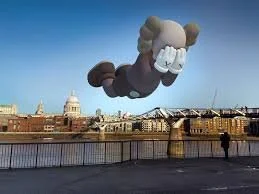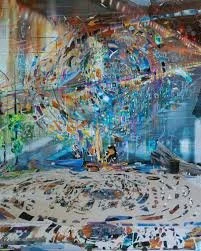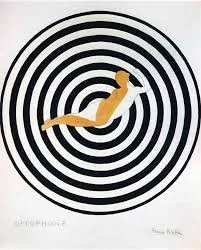as every office worker knows, it’s not the hope that kills you. It’s knowing it’s the hope that kills you that kills you.
It seems odd, at this point, that the driving musical montage in American Psycho is a Huey Lewis song? Huey seems harmless, a bit daft, not so much uncool as lacking in both the rock and in the roll? It’s not just axe murders and tunneling rats and dissociative manias that drive the plot. It’s also Huey and Bale’s cold empty eyes. Like how Quint describes the eyes of a shark. In yet another movie about naturalized monsters.
There is something denaturing about the hum of an office: the ringing phones, the vomiting copier, the calling out of the same greetings and same tired crutch of stale conversational gambits, tetrabytes of mouth breathers inhaling and exhaling, the fruits of this time (so-called work product) floating dead eyed and limp up there in the cloud and backed up on a remote server in a rack somewhere somewhat secure. And then there is the shared denial of the stolidly indisputable fact that the actual work being done doesn’t really matter all that much to most of the ones doing it, and the work that is done could have been done a lot quicker and a lot better, too, as everyone knows and nobody cares.
But what about art? Will it save us? And if not salvation, exactly, will it entice all who fall into its graves to enter into a reverie just long enough to make bearable another day in the trenches of glib discursive laments and garden-variety alienation? Will it fructify these barren hearts and shake shake shake us out of this slapdash monotony of motions-gone-through?
“Art is not difficult because it wishes to be difficult, rather because it wishes to be art. However much the writer might long to be straightforward, these virtues are no longer available to him. He discovers that in being simple, honest, straightforward, nothing much happens.”
At the school you may recall hearing:
They said, please, please make love with Helen, we require an assertion of value, we are frightened.
And also, on the side of the box, you may recall these instructions:
"The days of irony are here, irony and deception. But do not harden your heart."
And it is in these fleeting moments, remembrances, into which you dip and draw sustenance, however ephemeral it may be, and come to staring face to face with a strange object covered in fur that breaks your heart . . .






